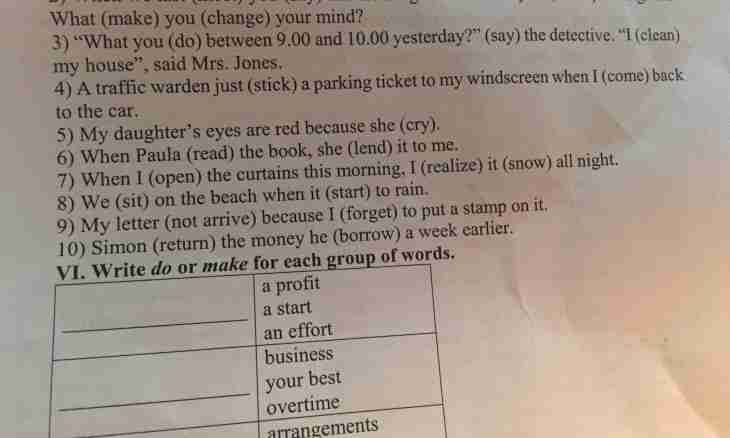The verbal adverb phrase in modern understanding can be called the semi-predicative isolated turn with the predominating adverbial participle and words depending on it.
Basic purpose of a verbal adverb phrase is the instruction on the action relating to an offer subject. Example: "Having summed up the results of a debate, the Chairman of the Committee noted community of the points of view of the speaker and participants of discussion". Derogations from this rule are caused by Gallicisms or influence of the demotic speech. Example: "Having the right to choose weapon, his life was in my hands" - A. Pushkin, "Approaching to shine stations and looking at the nature in a window, at me the hat" - A. Chekhov flew. The verbal adverb phrase does not mean the action relating to a subject provided that it: - corresponds to the infinitive showing action of the third party. Example: "His house was always full the guests ready to amuse his lordly idleness, dividing noisy, and sometimes and its violent amusements" - A. Pushkin; - corresponds to a participle (adverbial participle) expressing action which subject differs from the subject of the action determined by a predicate. Example: "She did not answer it, thoughtfully watching a game of the waves which were running up the coast, kolykhy a heavy launch" - M. Gorky; - it is correlated to an infinitive in the impersonal sentence which does not have a logical or grammatical subject. Example: "It was good to lie undressed now, having taken cover with a-headed overcoat and to think about the village and about the" - A. Kuprin. The dative case of a subject and lack of the infinitive correlated to a verbal adverb phrase are an indicator of violation of language norm and can be referred to specific features of a syllable of the author. Example: "Having made sure that it cannot understand it, it became boring for it" - L. Tolstoy. The place of a verbal adverb phrase in the offer is not strictly fixed, but it is necessary to consider that after a verb predicate the adverbial participle correlated to the subsequent action usually follows, and before a verb predicate the adverbial participle correlated to last action or which is the reason (condition) of this action is applied. Example: "The horse fell, having pressed down me a leg" - at first "fell", and then - "pressed down"; "Having been frightened, Vanya screamed" - "was frightened", and then "screamed" and "was frightened", and therefore "screamed".

